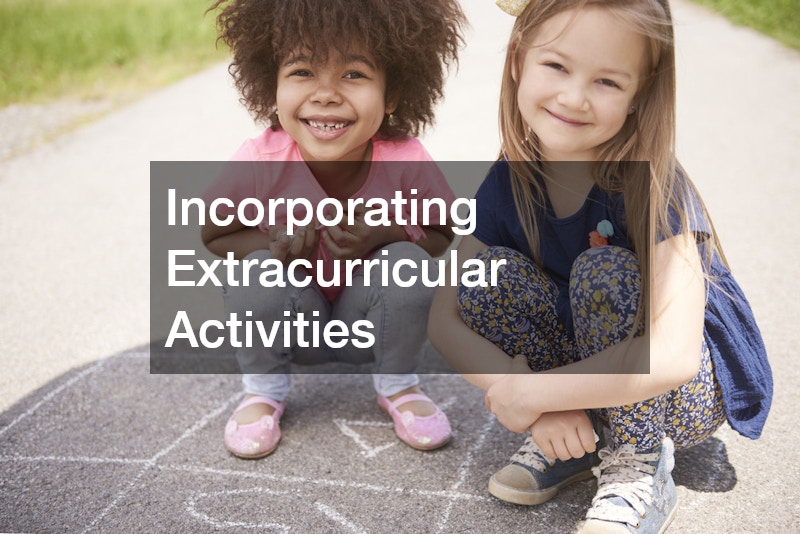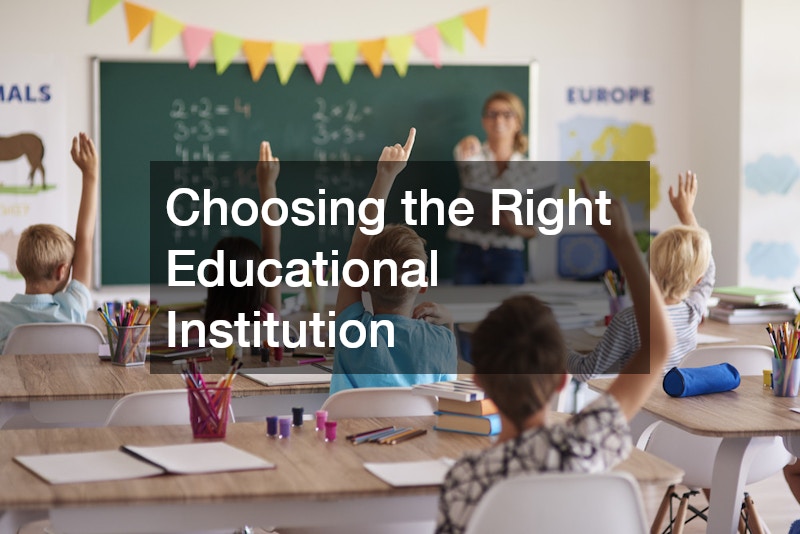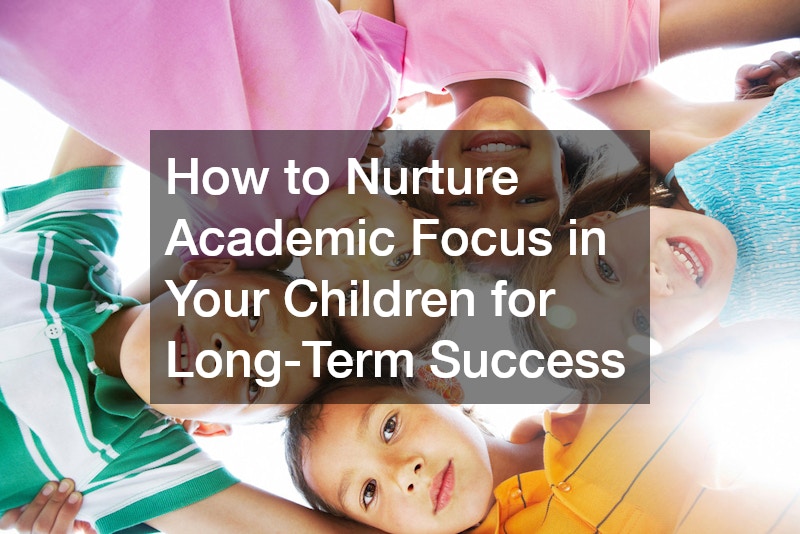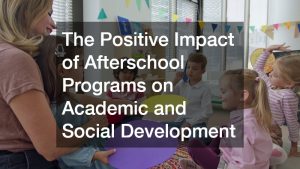In today’s rapidly evolving world, nurturing academic focus in children has become vital for their long-term success. Children constantly face numerous distractions, from digital devices to social media, that can hinder their capacity to concentrate on their studies. Therefore, as parents and educators, it is crucial to foster an environment that promotes academic attention and discipline from an early age.
Academic focus involves not just the ability to pay attention in the classroom but encompasses self-discipline, resilience, and a love for learning. Kids who develop a strong educational focus are more likely to achieve better grades, surpass challenges, and embrace a lifelong journey of curiosity. This article outlines effective strategies to nurture this essential quality in children, empowering them for future academic and professional endeavors.
From selecting the best kindergarten and exploring early childhood centers that align with educational philosophies to engaging them in various activities that stimulate learning, the foundation you lay during early years is crucial. As parents, you play a pivotal role in guiding your children through this journey to ensure they understand the importance of educational focus. Let’s embark on an exploration of how to cultivate this necessary trait effectively.
Understanding Academic Focus
Academic focus is defined as the ability to maintain attention on educational tasks and activities. It is influenced by a multitude of factors, including environment, emotional readiness, and individual interests. Children with a strong educational focus not only excel in achieving educational goals but also develop essential life skills such as critical thinking and problem-solving.
One critical aspect of nurturing educational focus is recognizing the developmental stages of children. During early childhood, children engage in exploratory play, which lays the groundwork for attention skills. As they transition to more structured environments, such as preschool and kindergarten schools, they should be guided towards activities that enhance their focus and cognitive abilities.
Understanding the importance of educational focus, parents and educators can work collaboratively to create strategies that align with children’s natural learning styles. By fostering environments that encourage questions and exploration, they can enhance children’s enthusiasm for learning. This approach not only aids in academic achievements but also cultivates a sense of curiosity and innovation that benefits them long-term.
The Role of Early Education
Early education plays a pivotal role in developing a child’s educational focus. Programs such as preschool and early childhood centers provide structured experiences that help children learn to concentrate, listen, and follow instructions. Engaging in these educational settings enables children to form relationships with peers and educators, further nurturing their cognitive and social development.
Choosing the best kindergarten for your child is essential; it should promote a curious and engaged learning environment. This includes an appropriate curriculum that emphasizes both academic skills and imaginative play. Such a balanced approach allows children to cultivate their interests while fostering a strong educational focus from the outset.
Furthermore, high-quality childcare education programs often incorporate activities designed to boost concentration and critical thinking. For instance, storytime sessions, art projects, and hands-on science experiments promote engagement and sustained attention. These diverse experiences not only keep children interested but also provide them with a solid foundation for their educational journey ahead.

Laying the Groundwork Early
The journey to academic focus begins far earlier than most people realize—even during infancy. High-quality infant childcare programs play a foundational role in supporting early cognitive and emotional development, both of which are essential precursors to educational focus. In these environments, babies are not only cared for but also engaged through sensory activities, music, storytelling, and interaction that stimulates their brains during critical developmental stages.
Choosing the right infant childcare center means selecting a place that fosters nurturing relationships and safe, structured routines. Consistency in care helps infants feel secure, allowing them to build trust and develop early attention skills. Caregivers who talk, read, and respond attentively to babies’ cues contribute to language acquisition, memory development, and emotional regulation—key elements of focus later in life.
Moreover, these early experiences in a structured but loving environment can set the stage for smoother transitions into preschool and kindergarten. When infants are introduced to routines, gentle challenges, and social interaction from an early age, they’re better prepared to adapt to formal learning environments later on. In this way, infant childcare becomes an essential stepping stone in cultivating long-term academic success.
Creating a Conducive Learning Environment
Creating a conducive learning environment at home is essential for nurturing educational focus. This involves designing a designated study area free from distractions, such as electronic devices. A well-organized and familiar space can signal to children that it is time to focus and learn, facilitating better concentration on their tasks.
The physical surroundings should ideally include necessary supplies like books, stationery, and educational toys. Incorporating various learning materials not only sparks interest but also caters to different learning styles. Additionally, a consistent routine can establish expectations, helping children understand when they need to switch their attention from playtime to academic activities.
Furthermore, parents can reinforce the importance of educational focus by minimizing distractions during study times. Engaging in quiet activities, such as reading together or doing puzzles, can help develop their attention spans over time. This creates a harmonious balance between fun and learning, making the process enjoyable and productive for children.

Incorporating Extracurricular Activities
Extracurricular activities serve as excellent tools to further enhance a child’s academic focus. Engaging in sports, arts, or music can significantly contribute to developing discipline and concentration. For example, enrolling your child in a swim school can teach them about commitment and focus while also promoting health and fitness.
Additionally, activities that require teamwork, such as team sports or group arts classes, can build social skills. These skills, imparted through interaction with peers, help children learn to communicate effectively and work toward common goals. The essence of educational focus extends beyond academics, preparing them for diverse life situations.
Furthermore, including spiritually enriching activities, such as Sunday school for kids or engagement in local Christian schools, can help shape their values. These experiences reinforce focus on broader life goals while deepening understanding of their values and beliefs. A holistic approach, combining academic and extracurricular pursuits, fosters well-rounded development and enhances overall academic focus.
Parental Involvement
Parental involvement is a key factor in cultivating educational focus in children. Children thrive when they know their parents are invested in their education, whether by checking homework or attending school events. By actively participating in their learning journey, parents can model the behavior of focus and discipline.
Communication is crucial; parents should regularly discuss academic goals and achievements with their children, as well as address any challenges. This openness encourages children to articulate their ideas, fears, and aspirations. Modeling resilience in the face of challenges will inspire children to maintain their focus and find solutions independently.
Furthermore, praising children for their efforts–not just their achievements–can significantly boost their confidence. Celebrating small victories reinforces the value of perseverance and encourages them to stay focused on their goals. With continuous support and encouragement from parents, children can develop an intrinsic desire to maintain educational focus.

Choosing the Right Educational Institution
Selecting the right educational institution is vital for promoting strong academic focus. Researching options such as private schools, local Christian schools, and childcare education centers is crucial in finding the best fit for your child’s needs. Each of these institutions offers unique benefits tailored to various learning preferences and cultural values.
For instance, private schools often provide smaller class sizes, conducive for personalized attention and focused academic guidance. Conversely, local Christian schools weave moral and ethical teachings into their curricula, fostering comprehensive education. Evaluating factors such as teaching styles, curriculum, and school environment aids parents in making informed decisions.
Additionally, visiting potential schools and engaging with educators can provide insight into how each institution promotes educational focus among its students. Gather as much information as you can about their approaches to learning, discipline systems, and extracurricular programs before making a commitment. Finding the right educational partner will play an integral role in nurturing your child’s academic focus for years to come.
Monitoring and Mitigating Distractions
Even in the most nurturing environments, distractions can hinder a child’s educational focus. Therefore, it’s essential to monitor and mitigate these distractions actively. Kids are surrounded by numerous entertainment options that can divert their attention, so setting limits on screen time and encouraging focused activities is critical.
Regularly reassessing your child’s needs and adjusting both their learning environment and routines as necessary can also help foster better concentration. Balancing academic obligations with leisure activities will cultivate a more focused mindset. This balance enables children to view their studies as meaningful while still enjoying their childhood.
Furthermore, teaching children techniques for managing distractions can empower them. Simple strategies, such as breaking tasks into smaller, manageable parts or using timers for focused study periods, instill self-regulation skills. Equipping them with these tools builds resilience and promotes greater educational focus in their educational journey.
The Impact of Mindfulness and Meditation
Mindfulness and meditation practices can significantly enhance a child’s ability to focus. Incorporating short mindfulness exercises, even for a few minutes a day, can teach children to center their thoughts and reduce anxiety. This practice can lead to improved educational focus, as they learn to tune out distractions and concentrate on their tasks.
Activities such as deep breathing exercises or guided imagery can be both enjoyable and beneficial for young minds. Parents can introduce these techniques before homework or study sessions to promote a calm and focused mindset. By integrating mindfulness into daily routines, children learn to cultivate their attention span and enhance their overall learning experience.
Furthermore, fostering a culture of mindfulness within the family can promote emotional well-being, which directly correlates with educational focus. Open discussions about feelings and practicing gratitude or reflection can create a supportive environment. As children become more aware of their emotions, they are better equipped to stay focused on their academic tasks and inquiries.
Encouraging Independent Learning and Exploration
Academic focus isn’t solely about structured classroom learning—it also thrives when children are encouraged to explore topics independently. Providing opportunities for children to pursue their interests outside of formal education helps cultivate self-driven learning. Whether it’s reading books about dinosaurs, exploring coding apps, or conducting simple science experiments at home, curiosity fuels concentration.
Parents can support this by offering diverse learning resources and freedom to choose topics that excite their children. Trips to the library, access to educational games, and allowing time for unstructured but purposeful play are all valuable strategies. These independent learning experiences foster ownership of knowledge, which can significantly increase intrinsic motivation and attention span.
In addition, setting small personal projects or challenges—like building a birdhouse or writing a short story—gives children a sense of accomplishment and autonomy. When children are empowered to guide their own learning, they develop deeper focus, creativity, and problem-solving abilities that translate directly into academic success.
Building Resilience and Grit
Resilience and grit are vital traits that contribute to a child’s educational focus. These qualities enable children to persist in the face of challenges and maintain their concentration on their goals. Teaching them that setbacks are a natural part of learning fosters a growth mindset, encouraging them to embrace challenges rather than shy away from them.
Parents can build resilience by allowing children to take on challenges while providing support and guidance. Encouraging them to reflect on failures and analyze what they could have done differently fosters a sense of responsibility and self-improvement. This behavior not only strengthens their resilience but also enhances their academic focus and perseverance.
Moreover, praising effort over outcome can instill a sense of grit in children. Recognizing their hard work and determination cultivates intrinsic motivation, encouraging them to maintain their focus on their academic pursuits. A child who understands that perseverance leads to growth is more likely to remain dedicated to achieving their educational goals.
Nurturing academic focus in children is an ongoing journey that requires commitment from parents, educators, and the community. It involves understanding children’s unique needs, providing supportive environments, and fostering a balance between academic and personal growth. By employing effective strategies—such as selecting the best kindergarten, engaging in meaningful extracurricular activities, establishing routines, and teaching mindfulness—parents can facilitate this essential quality for their children.
The importance of developing educational focus cannot be overstated; it empowers children not only to excel in their education but also equips them with skills vital for their future endeavors. As educators become more aware of each child’s learning styles in early childhood centers, including preschool and private schools, they play a pivotal role in guiding children toward achieving their academic goals. Seasonal adjustments, practice resilience, and modelling appropriate behaviors can further reinforce their focus and determination.
Ultimately, a combined effort from home, educational institutions like local Christian schools, and the broader community, including activities like Sunday school for kids and engaging in swim schools, shapes the educational experiences of children. By staying invested and proactive, parents and caregivers can instill a lasting academic focus in their children, paving the way for a lifetime of curiosity, success, and fulfillment. The skills and habits built during these formative years will serve as a strong foundation, guiding them through the challenges and opportunities of an ever-evolving world.







